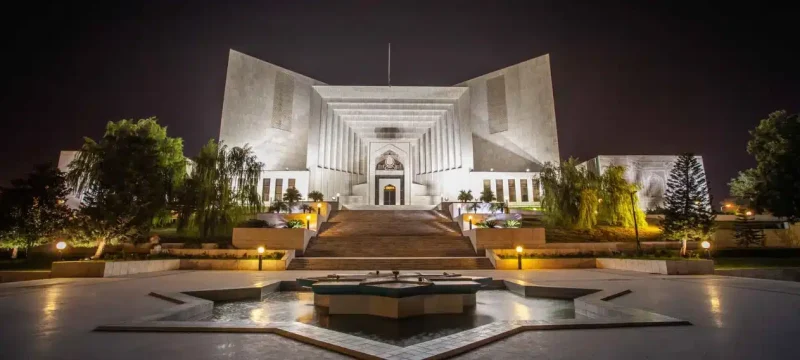In a significant ruling, the Supreme Court of Pakistan has underscored the importance of exercising caution in cases involving matters of faith. Chief Justice Qazi Faez Isa authored a five-page judgment granting bail to an accused charged with distributing a proscribed book, Tafseer-e-Sagheer.
Expressing concern over the emotional nature of cases related to offences against religion, the judgment emphasized that such offences are not against individuals or personal property but are often overshadowed by emotions, with individual complainants taking precedence over the state.
The court noted discrepancies in the charges against the petitioner, highlighting that distributing the proscribed book was made an offence by an amendment in 2021, while the alleged act took place in 2019. According to the Constitution, individuals cannot be charged for acts that were not offences when committed.
Also Read: Supreme Court Asserts Limitations on Disqualifying Proclaimed Offenders from Elections
Furthermore, the judgment ruled that the petitioner could not be charged for offences under sections 298-C and 295-B of the Pakistan Penal Code (PPC), as neither the FIR nor the police report alleged his involvement in these acts.
Addressing the principles of religious compulsion, the judgment cited Quranic verses emphasizing that coercion violates the Divine scheme of accountability in the hereafter and emphasized the freedom of faith as a fundamental tenet of Islam.
The court criticized the authorities for not heeding the Quranic mandate and constitutional provisions, suggesting that the FIR would not have been registered if they had. Additionally, it highlighted the petitioner’s prolonged incarceration, which exceeds the maximum permissible punishment under the law.
Considering the violation of fundamental rights, including the right to liberty and a fair trial, the court concluded that the petitioner’s continued detention is unjustified, as he has already served out the maximum imprisonment prescribed for the offence.
In light of constitutional guarantees and the petitioner’s prolonged detention, the court emphasized the imperative to adhere to the law and grant him bail, as his continued imprisonment violates multiple fundamental rights enshrined in the Constitution.









